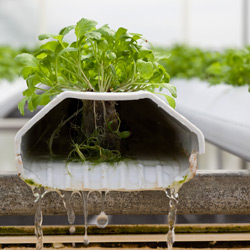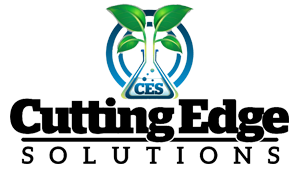
To the conventional gardener, hydroponic systems can seem a little bit like magic. Soil is miraculously replaced by tubes, tubes and growing mediums supported by nothing but water. It turns out that these systems can work some magic on the environment, too. Hydroponic systems are more eco-friendly than soil gardening in every conceivable way.
Space Efficiency
Foot per foot, hydroponics produces higher crop yields faster than conventional soil gardening. In fact, hydroponic tomato growing will produce 18 times the amount of tomatoes per acre and lettuce crops mature two weeks faster compared to soil gardening.
Fertilizers and Pesticides
Where a traditional garden can require two pounds of fertilizers per 100 square feet every season, a well-maintained hydroponic system eliminates the need for pesticides and fertilizers that pollute the environment. The all-natural nutrients that are used are contained within the system, preventing runoff entirely. Indoor systems are at almost no risk of insect infestation. Even outdoors, the lack of soil reduces insects, and it is easy to remove an infested plant.
Water
One would think that growing plants hydroponically would require more water than conventional systems, but the opposite is true. Because the water is contained and continuously recycled, efficient hydroponic systems use one-tenth of the water that conventional gardening does.
Low-Waste
Bag after bag of soil and fertilizers are required to maintain a conventional garden, and every one of those bags is made of plastic. Each will take anywhere from 200 to 1000 years to biodegrade. Hydroponics eliminates the need for all of these bags and the plastics used to ship them. Indoor gardens also eliminate the time and materials that go to waste when unexpected weather shifts kill off crops.
Transportation
Grocery store vegetables and the soil, fertilizer and pesticides required for soil gardening have another, hidden impact on the environment. Every bag of gardening mixture and every crate of vegetables must be shipped, sometimes cross-country, spewing carbon dioxide into the environment. Once a hydroponic garden is established, there is almost no need for additional, shipped materials. Even the nutrients used are very concentrated, reducing the need for frequent shipments.
Hydroponic systems produce less waste, use less water, are more efficient and are virtually pollutant-free. For the eco-conscious gardener, there is no better choice for growing vegetables at home.





















 © 2017
© 2017
Recent Reviews